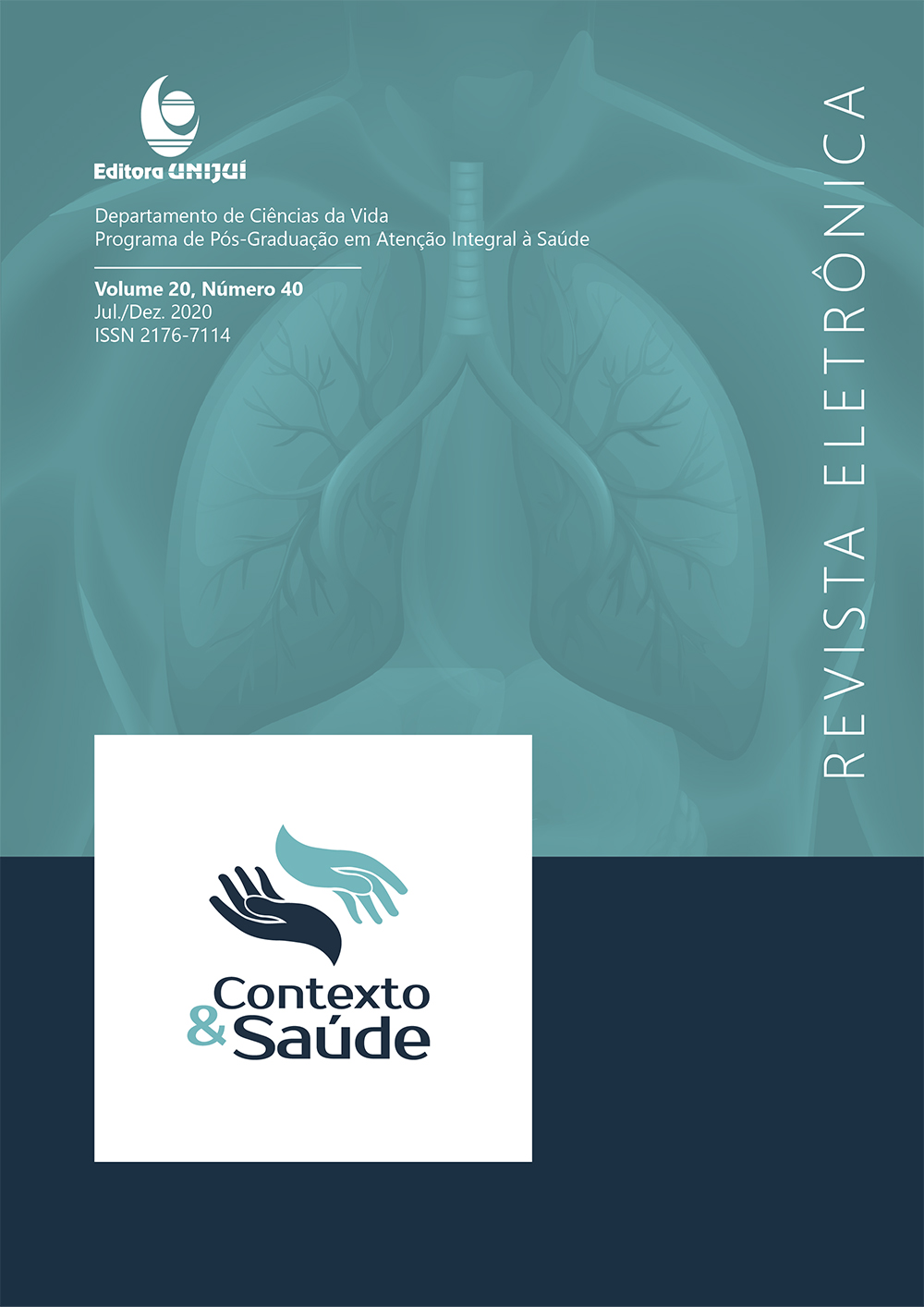DETERMINAÇÃO DO POTENCIAL ANTIMICROBIANO DE ÓLEOS ESSENCIAIS DE LAVANDA (LAVANDULA DENTATA L.) E MANJERICÃO (OCIMUM BASILICUM L.) SOBRE CEPAS DE PSEUDOMONAS AERUGINOSA ISOLADA DE LEITE MASTITÍCO BOVINO
DOI:
https://doi.org/10.21527/2176-7114.2020.40.209-214Palavras-chave:
Mastite; bactérias; antibióticos; óleo essencial; plantas.Resumo
Objetivo: Avaliar óleos essenciais extraídos da flor e folha de lavanda (Lavandula dentata L.) e manjericão (Ocimum basilicum L.), quanto sua ação antimicrobiana frente a bactéria Pseudomonas aeruginosa, isolada de leite mastítico bovino. Método: Foi realizado coleta, identificação e catalogação das plantas selecionadas, e após a extração dos óleos essenciais pelo método de arraste à vapor, por hidrodestilação. As análises foram realizadas em triplicata, no Laboratório de Microbiologia Veterinária da Unijuí, pelo cultivo bacteriano em placas, confrontados a 20 μl de óleo essencial, mantidas em estufa bacteriológica a 36ºC por 24 horas. Resultados: O perfil de sensibilidade antimicrobiana dos óleos essenciais testados frente à cepas de Pseudomonas aeruginosa, apresentou os seguintes resultados: para o óleo essencial da flor do manjericão 7 mm no tamanho do halo de inibição nos três testes, para a folha do manjericão, houve a maior atividade inibitória, com halos de inibição com 12 mm em duas amostras e 14 mm na terceira. Já para o óleo essencial da flor da lavanda apresentou halo de inibição de 6 mm, 7mm e 9 mm, em cada teste, e para o óleo da folha da lavanda apresentou resultados semelhantes ao da sua flor, com halo de inibição de 8 mm em dois teste e 6 mm no outro. Conclusões: Sugere-se que o óleo essencial da folha do manjericão, possa ser uma fonte de compostos com potencial terapêutico no combate à bactéria patogênica Pseudomonas aeruginosa. Verifica-se que o uso de do óleo essencial apresenta-se como uma alternativa para o tratamento de mastites em bovinos leiteiros.
Downloads
Publicado
Como Citar
Edição
Seção
Licença
Ao publicar na Revista Contexto & Saúde, os autores concordam com os seguintes termos:
Os trabalhos seguem a licença Creative Commons Atribuição 4.0 Internacional (CC BY 4.0), que permite:
Compartilhar — copiar e redistribuir o material em qualquer meio ou formato;
Adaptar — remixar, transformar e criar a partir do material para qualquer fim, inclusive comercial.
Essas permissões são irrevogáveis, desde que respeitados os seguintes termos:
Atribuição — os autores devem ser devidamente creditados, com link para a licença e indicação de eventuais alterações realizadas.
Sem restrições adicionais — não podem ser aplicadas condições legais ou tecnológicas que restrinjam o uso permitido pela licença.
Avisos:
A licença não se aplica a elementos em domínio público ou cobertos por exceções legais.
A licença não garante todos os direitos necessários para usos específicos (ex.: direitos de imagem, privacidade ou morais).
A revista não se responsabiliza pelas opiniões expressas nos artigos, que são de exclusiva responsabilidade dos autores. O Editor, com o apoio do Comitê Editorial, reserva-se o direito de sugerir ou solicitar modificações quando necessário.
Somente serão aceitos artigos científicos originais, com resultados de pesquisas de interesse que não tenham sido publicados nem submetidos simultaneamente a outro periódico com o mesmo objetivo.
A menção a marcas comerciais ou produtos específicos destina-se apenas à identificação, sem qualquer vínculo promocional por parte dos autores ou da revista.
Contrato de Licença (para artigos publicados a partir de setembro/2025): Os autores mantém os direitos autorais sobre seu artigo, e concedem à Revista Contexto & Saúde o direito de primeira publicação.

